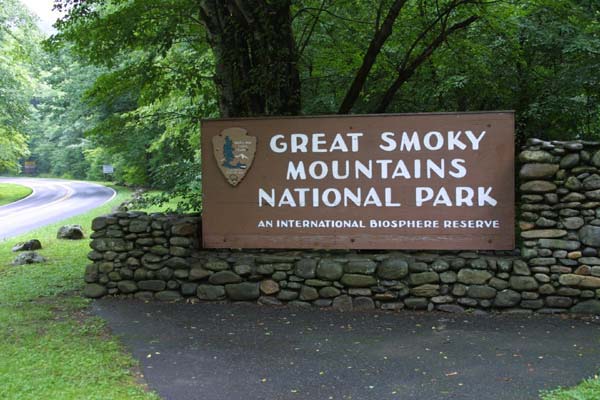 Camping is a notably family friendly past time that provides fun and excitement in the clean open air. However, camping trips in places like the Great Smoky Mountains make family trips twice as nice because of the lovely surroundings and tons of activities. The Great Smoky Mountains range is a sub-range of the Appalachian Mountains and is a natural and historic gem that graces the landscapes of both Tennessee and North Carolina. The Great Smoky Mountains National Park preserves much of the breathtaking scenic beauty of the area and serves as a hub for people to learn more about the mountainous region. Here are some interesting things to do and see while visiting the Great Smoky Mountains in your conversion van.
Camping is a notably family friendly past time that provides fun and excitement in the clean open air. However, camping trips in places like the Great Smoky Mountains make family trips twice as nice because of the lovely surroundings and tons of activities. The Great Smoky Mountains range is a sub-range of the Appalachian Mountains and is a natural and historic gem that graces the landscapes of both Tennessee and North Carolina. The Great Smoky Mountains National Park preserves much of the breathtaking scenic beauty of the area and serves as a hub for people to learn more about the mountainous region. Here are some interesting things to do and see while visiting the Great Smoky Mountains in your conversion van.Cades Cove
Within the Great Smoky Mountain's Tennessee border, lies a popular area for wildlife and historic sightseeing called Cades Cove. The Cove is a fertile valley tucked among the area's mountains and hills. The fact that this area is known for wildlife viewing easily verifies archaeological excavations showing that the Cherokee used the spot as a hunting ground. Animals that live there include white-tailed deer, black bears, raccoons, and even turkeys. Today, hiking trails and carefully restored 19th century historical structures are seen throughout Cades Cove. Horseback riding is also a popular activity at Cades Cove, and a stable that rents horses is found near the Cades Cove campground where conversion vans and RVs up to 35 feet can set up camp at one of 159 camp ground sites.
Mountain Farm Museum
The Great Smoky Mountains' agricultural roots run deep as evidenced by the Mountain Farm Museum located near Cherokee, North Carolina. Visitors to the farm will see how a person living in the late 19th century would have lived on an operational farm. The buildings include a log farm-house, barns, a spring house, a smoke house, an apple house, and a blacksmith shop. Although park rangers stationed at the nearby Oconaluftee Visitor Center answer questions about the park, the tour is pretty much self guided. The buildings associated with the Mountain Farm Museum are authentic, but they were moved to their current location years ago; the nearby hydro powered mill built in 1886 is still in its original location. Smokemont Campground is a great place to park a conversion van for those who love fishing, swimming, and wildlife viewing around the Oconaluftee River and Bradley Fork.
Great Smoky Mountain Enrichment Workshops
In addition to the informal tours and abundant outdoor excursions, there are some formal workshops to educate visitors about the area's ecology and cultural history. For example, the Great Smoky Mountains Institute at Tremont offers programs for all ages that explore the area's wildlife, natural history, and even traditional mountain folk music. The Smoky Mountain Field school sponsored by the University of Tennessee often hosts weekend workshops targeting vacationing families that want to learn about the early inhabitants of the region, the area's native flora and fauna, and some aspects of hiking the region. The park rangers that work in the Great Smoky Mountains on a daily basis have a wealth of information to share with area visitors, and they hold free programs spring through fall.
The best time to visit the Great Smoky Mountains depends on the planned activities enjoyed by visitors. For those who tour the region for its famed scenic beauty, autumn is a lovely time to visit and see the abundant color of the area. Summer is a popular time of year to visit because families with children choose many water sport activities. Spring is undoubtedly one of the most comfortable times of year for biking and hiking expeditions; it is also the least crowded time of year to visit the Great Smoky Mountains in your van.













